Lori Byrd Phillips is a museum studies graduate student at Indiana University-Purdue University Indianapolis (IUPUI) and the current Wikipedian-in-Residence at the Children’s Museum of Indianapolis. She recently received a full scholarship from the Wikimedia Foundation to participate in Wikimania, an international conference located this year in Haifa, Israel.
When I first started my graduate program in museum studies I would never have thought that Wikipedia would become such an important part of my research and experiences within the museum field. Over the course of the past two years, however, I’ve come to understand the potential of Wikipedia as a collaborative learning tool and as a means for increasing accessibility to museum content. The discussions within the museum field surrounding trends in collaboration, accessibility, and technology solidify my feeling that Wikipedia has an important role to play in the future of museums. The Museums & Society 2034 report points to a future that includes a creative, collaborative renaissance stemming from a technology-savvy society. IMLS encourages museums to provide tools for communities to learn important 21st century skills, including collaboration and media literacy. The 2010 Horizon Report: Museum Edition describes key trends in museum technology that will promote visitor interaction and accessibility. Wikipedia can serve to answer the call of each of these trends.
I have had the opportunity to work with both the Children’s Museum of Indianapolis and the Indianapolis Museum of Art on Wikipedia-related projects. I am currently the Wikipedian-in-Residence at the Children’s Museum, where I am coordinating a content donation from the museum to Wikimedia, including images as well as institutional research. The collaboration is not about driving traffic from Wikipedia to the museum’s website (though that is a perk), but about benefiting a much wider, global audience through the sharing of content. Through the Museum Apprentice Program, we developed a program that allowed middle and high school students to contribute information to Wikipedia. The students worked in teams to research iconic museum objects, learn Wikipedia with the help of detailed guides, and create a total of five new Wikipedia articles. The Indianapolis Museum of Art’s E-Volunteer program provides the resources for volunteers to learn Wikipedia and then research and create articles about notable IMA artworks. The program has the potential for Wikipedians from all over the world to become IMA E-Volunteers, as well.
It is through programs such as these that I believe Wikipedia can prove valuable for the museum of the not-so-distant future. Community programming can utilize Wikipedia in order to combine collaborative, 21st century research skills with an efficient method for sharing collections information. Museums are being called upon to be increasingly accessible, but digitization efforts can be time consuming for staff. Museums are also expected to offer educational services to their communities, including opportunities for digital literacy. Wikipedia is one of the largest collaborative digital communities in existence, and will only continue to become more relevant in the coming years. By providing public programming opportunities that use Wikipedia to teach 21st century research skills, museums can also digitize their published collections information in a way that is not time consuming for already-overburdened staff. In addition to this dual-benefit for museums and those participating in such programs, the wider global community benefits through increased access to the museum content that is added to the encyclopedia. As if that wasn’t enough, there’s also the potential of mobile phone applications, where geolocation programs or QR codes can link to Wikipedia articles from within exhibits and provide deeper levels of information for visitors. Sounds like a win-win-win (…-win?) situation to me!
Skip over related stories to continue reading articleMany are still concerned about Wikipedia’s level of reliability, but in actuality the information in Wikipedia is extremely well vetted, not to mention well referenced. In recent years, automated systems have been developed that greatly reduce vandalism, making this much less of an issue. Another concern is the museum’s lack of control over contributed content. However, more often than not your contributions are made even better, not worse. One of the greatest benefits of Wikipedia is the ability to update information and easily maintain accuracy. In my opinion, the benefits of sharing professional expertise and collections information on Wikipedia far outweigh the often overinflated issues of reliability and control.
Others feel that engaging with the Wikipedia community can be intimidating, especially due to the various policies that are in place to maintain accuracy. Luckily for museums, a Wikipedia community known as GLAM (Galleries, Libraries, Archives, and Museums) provides resources to assist with the collaboration between Wikipedia and the cultural sector. Through the centralized efforts of the GLAM initiative, institutions around the world have begun to coordinate with Wikipedia in more purposeful ways, including the British Museum, the Palace of Versailles, and the National Archives in Washington D.C. Wikipedia certainly has an important role to play in the future of museums, both as a means for increasing accessibility and as a learning tool for our communities. It has been inspiring to see how the encyclopedia has already become an indispensible tool for some institutions in the cultural sector.
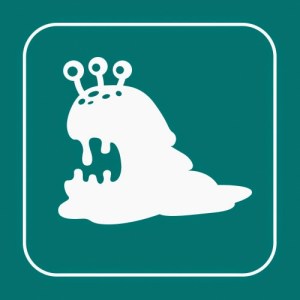


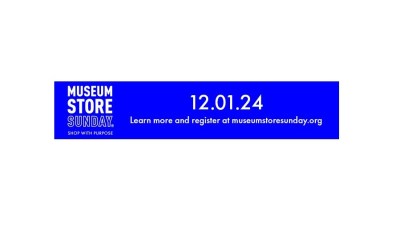
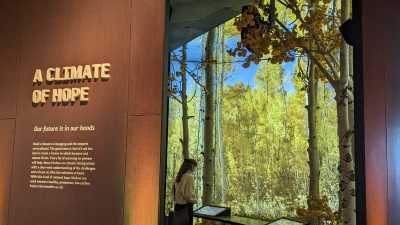

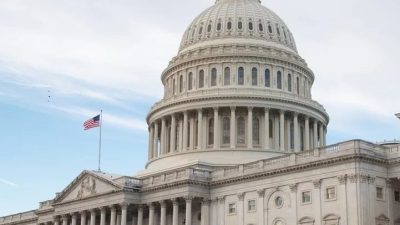
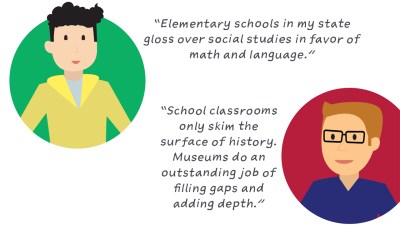
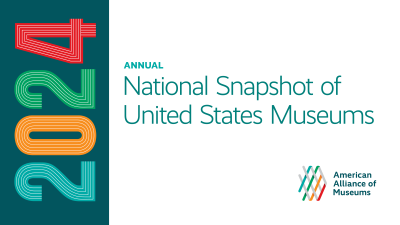
I agree with Lori – little would I think that Wikipedia would become a major source of study, collaboration and importance in my graduate work as a Museum Studies student at George Washington University.
Thank you Lori for laying it out in an honest manner that is welcoming for collaboration. I look forward to seeing what the FUTURE brings and, as a Wikipedian, furthering GLAM relationships with cultural institutions of all shapes and sizes.
Thanks Lori for explaining it so clearly. I will use some of your reasonings while visiting museum-professionals in Barcelona.
As you told, the potencial of a network of worldwide e-volunteers is a topic that museums should care about.
I find this post really saddening. As someone who provided a lot of the high quality content for Wikipedia, making claims that it is all well written and referenced is far from the truth. Myself and my friends are responsible for having so many universities and museums willing to work with Wikipedia, and we didn't do that by misconstruing the state of the place.
Thanks for the comment, Ottava. I think there are many different perceptions regarding the reliability of Wikipedia, and that's fine. I did not say that Wikipedia is all well-written and referenced, nor would I make that claim. Rather, many do not understand that there are processes in place to help with the maintenance and quality of articles. It's important that people know this and that Wikipedia will only ever be as good as its contributors.
Perhaps we have two different understandings of the English language. You claim in your last post: "I did not say that Wikipedia is all well-written and referenced, nor would I make that claim."
Your original post says: "but in actuality the information in Wikipedia is extremely well vetted, not to mention well referenced"
Claims like that are what gives Wikipedians a bad reputation, where you can't even verify your own statements. I find your post extremely insulting as such.
Thank you Lori for your post. If only it were possible in good conscience to agree with that optimism.
I am the most prolific contributor of featured content in Wikimedia Foundation history; over four hundred of my contributions have been peer-evaluated as the finest work at Wikipedia, Wikimedia Commons, and other projects. The largest portion of those were digital restorations of historic artwork.
A year ago I retired from editing. Departure meant walking away from offers of sponsored travel etc. As currently managed I really cannot recommend the place.
Ottava, I think you're making much of a simple miswording. Based on my interactions with Lori, I know that she understands Wikipedia's limitations as well as its strengths.
What Lori appears to have been trying to point out is that Wikipedia is often far better vetted and referenced than its popular caricature would suggest. As someone who "provided a lot of the high quality content for Wikipedia", surely you ought to understand that.
Fussing over the details, I fear you miss the greater point of this post, which is that Wikipedia and museums have much to offer one another—museums to Wikipedia the expertise and references you imply are so badly needed, and Wikipedia to museums a highly visible public outlet for their cultural strengths.
If that were the sole objection, Nihiltres, you and I would be in agreement. Wikipedia could improve at being a safe working environment.
Much of our historic knowledge is gained from archived antique manuscripts and iconic objects which are mostly to be found in museums, libraries, archives and galleries which cannot be visited by the majority of the world's population.
Initiatives like those in which Lori is involved and which Wikipedia GLAM supports are really important in bringing access to all of our common global heritage.
A good start which needs to be emulated and expanded by other Wikipedians to bring access to more parts of the world's heritage. I wonder if some one has made a breakthrough with private collections which are virtually inaccessible to the rest of the world.
I agree that there is a enormous potential for museums – large or small – to collaborate with Wikipedia.
I have just written a detailed blog post with videos about my experiences as a museum curator of doing just that in Derby Museum, England.
http://nickmoyes.blogspot.com/2011/04/when-glam-met-wiki-wikipedia-and.html
@butterflydiaries–you raise a very interesting point! How can museums use the virtual world to bridge the gap between museum and private collections? Maybe we are reaching a point where museums can "curate" (track, catalog and interpret) material that the museum neither owns nor houses.
As a Museum Studies graduate student at Indiana University Purdue University Indianapolis, I have learned in the past year that collaboration is necessary to the survival of museums in the future. My recent experiences with Wikipedia have proven to me the value and potential it has for such collaborative efforts. Wikipedia offers museums around the world the opportunity to connect with each other through digitally sharing their collections and knowledge. This beneficial sharing supports the various participating museums by featuring their collection and creating a more diverse opportunity for loans, resources, and a general knowledge of public interest statistics through the use of “page view statistics.” It also benefits the local and global community through positions and programs such as the Indianapolis Museums of Art’s E-volunteer and the Children Museum of Indianapolis’ Museum Apprentice Program.
By developing these positions and programs, museums create opportunities for people, both locally and globally, to be an active part of a cultural institution. Wikipedia is a worthwhile resource that can spark personal interest and investment in a museum through the development of a visible product—a Wikipedia article—while providing the museum with much needed assistance and support.
As Lori said, “Wikipedia certainly has an important role to play in the future of museums, both as a means for increasing accessibility and as a learning tool for our communities.” Wikipedia offers an invaluable collaborative opportunity for museums to advocate their collections not only with each other but also with the growing global technological community.
@Bodhibadger, how wonderful if we succeed in this. Today, large parts of everyone's heritage is up for sale in auction houses great and small, real or virtual. Wikipedia, in conjunction with other free projects can bridge and bring together all the objects in the world for us to see.
Mu other point was slightly different. How can Wikipedia/Wikimedia Commons and related "open" projects such as archive.org etc help bridge the gap between the heritage of the world and those whose heritage it is?
For example, almost no meaningful percentage of Indians (being Indian, my point of view begins here) will be able to visit the Simithsonian, the Louvre or any other great Museum, forget the lesser ones. Exciting developments in GLAM initiatives promise to me a brighter future in terms of access of knowledge than one thought possible even with internet etc, etc. The importance of such GLAMs in releasing digital content and freedoms, through the fruitful actions of Wikipedians, to those who have absolutely no rights, choices or opportunities in the matter cannot be over-emphasised.
@Alex, your viewpoint from up close, as to the implications of these developments to museums themselves in their immediate concerns are very indeed very valid.
Nick, that was an amazing post which has brought forth all the lessons learnt and best practices. Sigh, I wish I was there to see the Rosetta stone and other wonderful objects.
My personal gratitude and best wishes for all who labour in this cause from Lori, Sara, Nick, Alex, and others discussing here AND all those unmentioned others who struggled and laboured to help bring these riches into the open gaze of all the citizens of the world.
User:AshLin aka thebutterflydiaries